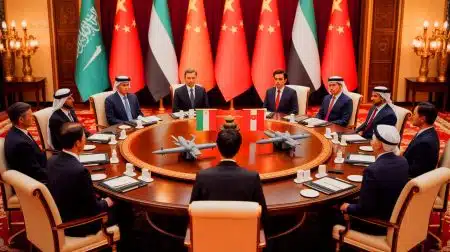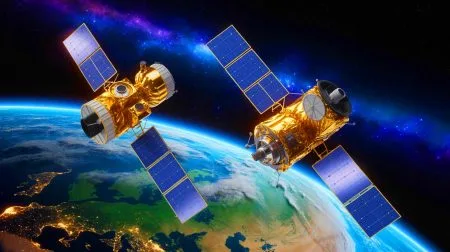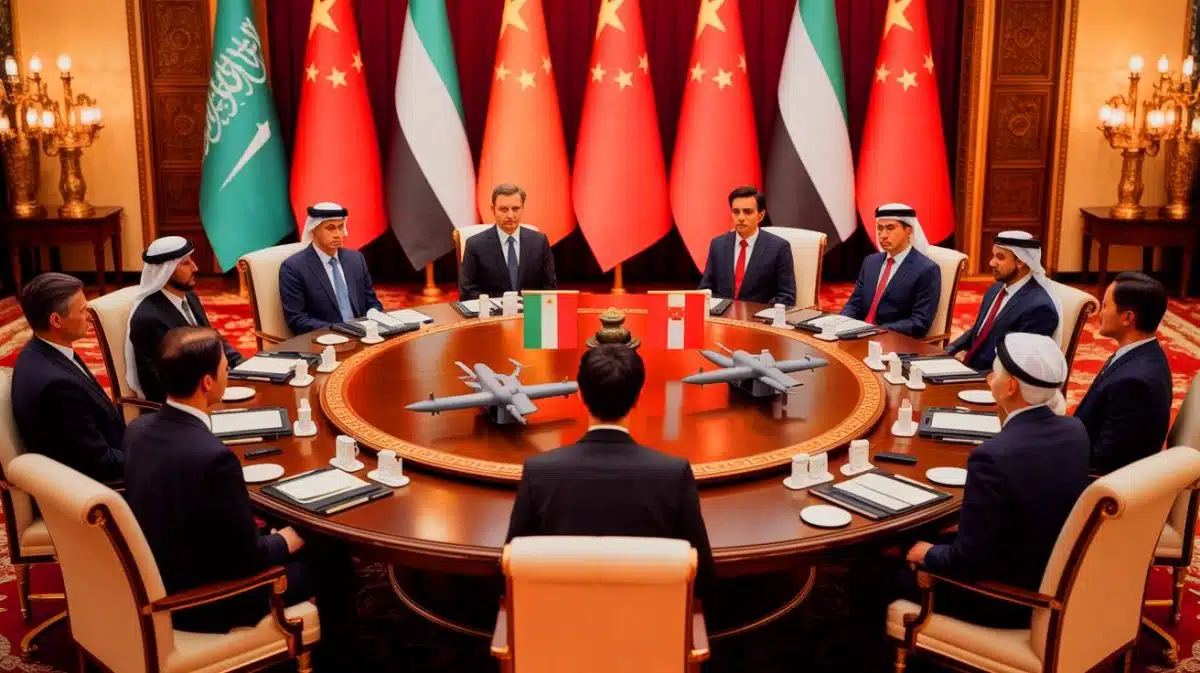| IN A NUTSHELL |
|
The recent summit of Arab and Islamic leaders in Doha underscores a pivotal moment in Middle Eastern defense dynamics. Traditionally reliant on Western military support, Arab nations are now contemplating a shift towards a more autonomous defense strategy, potentially involving greater collaboration with China. This strategic pivot arises in response to geopolitical tensions and technological advancements that promise to reshape regional security frameworks. As discussions of an “Arab NATO” unfold, the implications extend far beyond military alliances, touching on economic, political, and technological spheres that could redefine the region’s future.
China’s Expanding Footprint in Arab Militaries
China’s role as a defense supplier in the Middle East has grown significantly over the past decade. Countries like Saudi Arabia and the United Arab Emirates have incorporated Chinese technology into their military arsenals, utilizing advanced systems such as the Wing Loong II drones and DF-series ballistic missiles. These acquisitions reflect a strategic choice driven by competitive pricing, rapid delivery timelines, and the absence of political strings that often accompany Western arms deals.
The appeal of Chinese arms is not merely economic. The technological sophistication of Chinese systems, particularly in unmanned aerial vehicles (UAVs) and missile technology, offers Arab states an opportunity to enhance their military capabilities with cutting-edge tools. According to the Stockholm International Peace Research Institute, Chinese arms exports to the region have surged since 2015, signaling a shift that aligns with broader geopolitical trends.
This growing partnership between Arab states and China could signify a long-term strategic realignment, challenging the traditional dominance of Western arms suppliers in the region. As these relationships deepen, they bring into focus the possibility of more integrated military cooperation among Arab nations, with China as a central partner.
What an “Arab NATO” Could Look Like
The concept of an “Arab NATO” suggests a coalition focused on collective defense and security. This alliance would likely emphasize air and missile defense, leveraging early-warning radar systems and long-range missile interceptors to guard against external threats. The integration of unmanned systems, particularly drones, would be crucial in enhancing surveillance and strike capabilities.
Naval security is another priority, with coastal defense systems and ship-based missile batteries playing key roles in safeguarding maritime interests. A sophisticated command and control structure would be essential, ensuring seamless communication and coordination among coalition forces during operations.
Chinese defense firms could play a pivotal role in this framework, offering comprehensive solutions across these domains. Their expertise in creating cohesive “system-of-systems” packages, which integrate various military technologies, positions them as potential suppliers if Arab states pursue standardization. Moreover, Pakistan’s longstanding military partnership with Arab nations could serve as a bridge, facilitating interoperability through shared Chinese technology.
Past Attempts at Arab Military Integration
The aspiration for a unified Arab military force is not new. Historical efforts, such as the Arab League’s Joint Defense Council in the 1950s and Egypt’s proposal for a joint military force in 2015, have faltered due to internal disagreements and logistical challenges. However, today’s context differs significantly due to the availability of external support from China.
China’s comprehensive portfolio of military hardware offers a new avenue for achieving the technological cohesion necessary for such an alliance. Yet, the challenges remain substantial. Beyond acquiring hardware, Arab nations would need to develop joint doctrines, establish unified training regimens, and create robust logistics systems to ensure effective collaboration.
This endeavor is complicated by historical rivalries and political differences among potential member states. Nonetheless, the growing array of threats, from missile attacks to drone warfare, underscores the urgency of establishing a shared security platform. With China’s willingness to provide not only equipment but also training and financing, Arab states have access to a complete toolkit to pursue this vision.
Future Prospects and Challenges
The potential formation of an “Arab NATO” highlights a broader geopolitical shift. As Arab nations explore new defense partnerships, the balance of power in the Middle East could tilt away from Western influence. This transition is not without risks, as it involves navigating complex regional dynamics and managing diverse national interests.
The integration of Chinese military technology presents both opportunities and challenges. While it offers a path to enhanced capabilities and strategic autonomy, it also requires overcoming significant hurdles in interoperability and trust-building among member states. The success of such an initiative would depend on political will, mutual cooperation, and effective governance structures.
The future of Middle Eastern defense may well hinge on the ability of Arab nations to forge a cohesive alliance, leveraging new partnerships and technologies to address emerging threats. As these discussions progress, the region stands at a crossroads, contemplating a path that could redefine its security landscape for decades to come.
The discussions around an “Arab NATO” exemplify a significant strategic shift in the Middle East. As Arab nations explore new alliances and defense strategies, the implications for regional security and global geopolitics are profound. The integration of Chinese technology could offer a pathway to greater military autonomy, but it also raises questions about the future of traditional alliances with the West. How will these evolving dynamics influence the Middle East’s role on the global stage, and what challenges will emerge in balancing new partnerships with existing ties?
Did you like it? 4.5/5 (25)








Wow, this is huge! Will the U.S. just stand by and watch? 🤔
Wow, is this really the end of US influence in the Middle East? 🌍